PsychNewsDaily Publishers
100 Summit Drive
Burlington, MA, 01803
Telephone: (320) 349-2484
PsychNewsDaily Publishers
100 Summit Drive
Burlington, MA, 01803
Telephone: (320) 349-2484
Mega churches often face criticism for financial secrecy, leadership issues, abuse scandals, and manipulative teachings, impacting community relationships and authentic faith experiences.
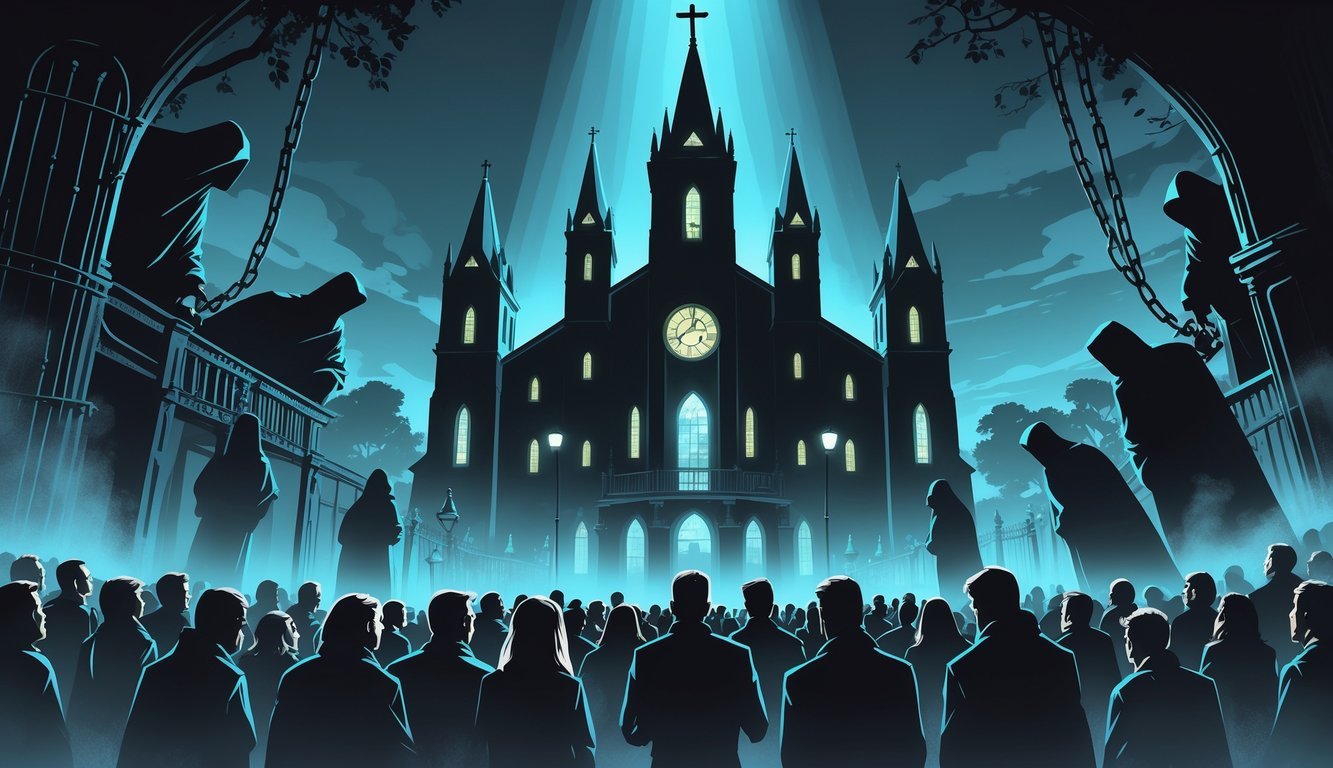
Mega churches draw in thousands with energetic services and bold promises. But if you look past the spotlights and stadium seating, you’ll find truths that rarely get discussed. These churches sometimes hide financial dealings, misuse power, and dilute faith in ways that can hurt both members and their communities. It’s worth knowing what’s really happening behind the scenes.
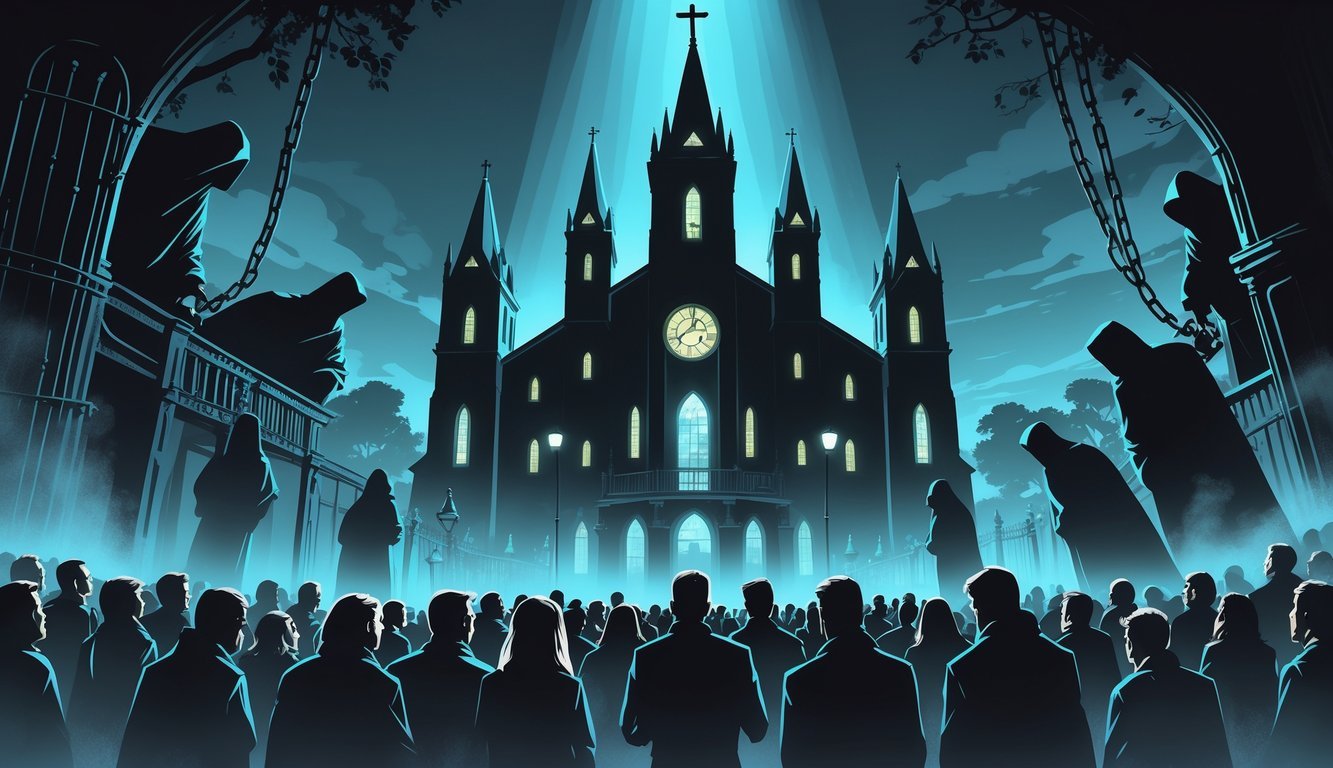
You might expect every church to be a place of pure faith and support, but mega churches often get slammed with some serious criticism. Folks talk about money scandals, misleading teachings, and heavy pressure to give. There’s a side to these places that’s not so rosy.
We’re about to dig into nine secrets that mega churches would rather keep under wraps. If you want the full story on these massive religious organizations, you’ll need to look past the polished surface. Learning about these hidden problems might just change how you see your faith and where you choose to worship.
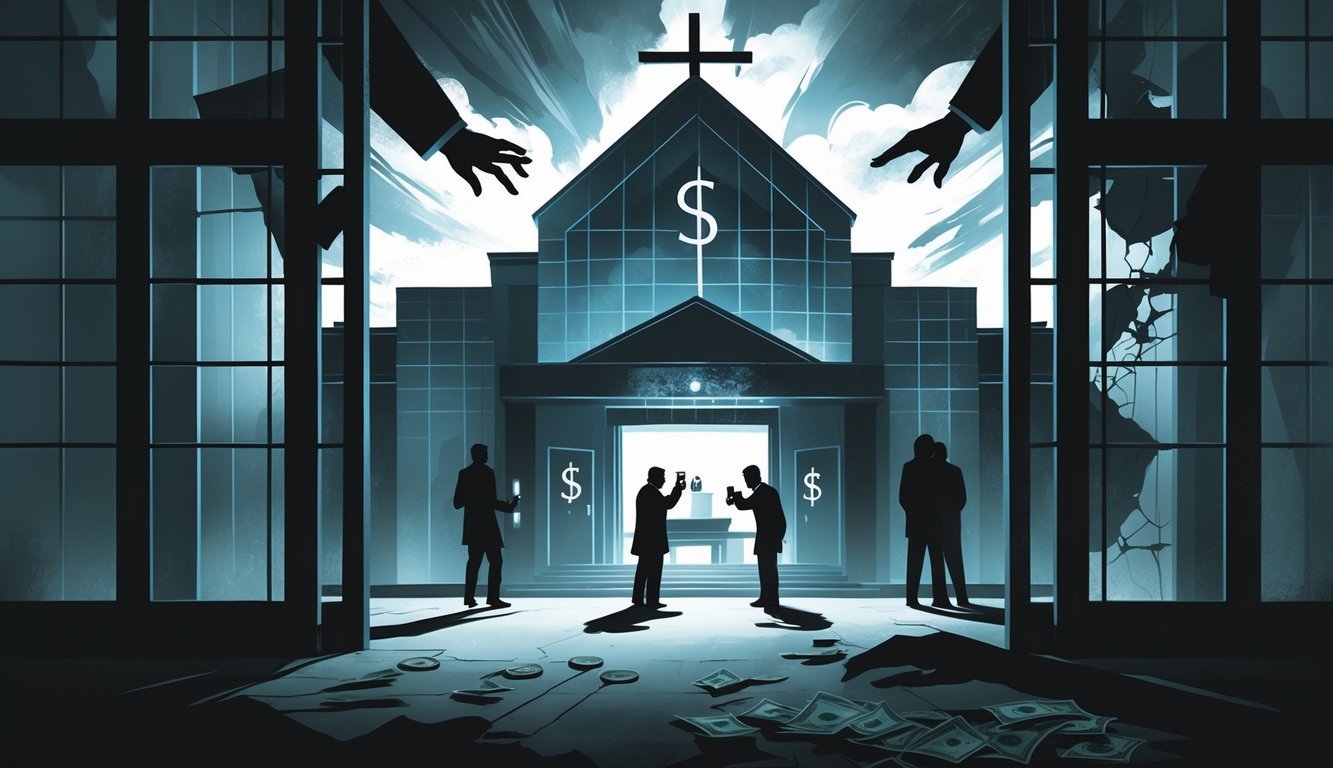
You probably expect a church to be open and honest, but some mega churches bury their problems. Money issues, leadership struggles, abuse cases, and even scary messages meant to control—these things all happen. If you know what’s going on, you’re less likely to fall for the shiny exterior.
Mega churches deal with huge sums of money, but they rarely show you where it all goes. Leaders often keep financial details hidden. This secrecy lets pastors and top staff rack up wealth—think big salaries, fancy houses, even private jets.
Some churches run like corporations, always chasing growth and drawing in business-minded leaders. But all that focus on money can pull people away from genuine worship or serving the community. You’ll also hear pastors pushing the “prosperity gospel”—the idea that if you give, you’ll get rich. That message ties your faith to your wallet and can feel like a real squeeze.
Leaders in mega churches usually hold a ton of power. People rarely challenge them, and criticism isn’t welcome. This unchecked authority can lead to some pretty bad decisions and even create toxic workplaces.
Some leaders mix spiritual authority with business tactics, which can muddle church discipline. You’ll see pastors using leadership conferences to build their own networks instead of serving the congregation. Sometimes, evangelical leaders even claim they have special authority—like the apostle Paul—to keep everyone in line.
Unfortunately, abuse scandals happen—often involving senior pastors or staff. Sexual abuse is a real problem, and victims often get silenced so the church can protect its reputation. Sometimes leaders ignore complaints or even stop people from reporting abuse.
This kind of silence hurts kids and adults and can destroy lives. Church discipline often focuses on saving face, not finding justice. You should expect honesty from your church, especially about serious issues like this, but mega churches often don’t deliver.
Some sermons use fear as a tool. You’ll hear warnings about judgment, the end of the world, or “false religion” to push you into obedience. This “end times” talk can make people anxious and shape how they live their faith.
Pastors sometimes use fear to keep people giving or sticking around. They might suggest you’ll lose your salvation if you don’t follow every rule. Instead of hope, you get a culture built on fear. Once you spot this, you can decide for yourself what feels right on your faith journey.
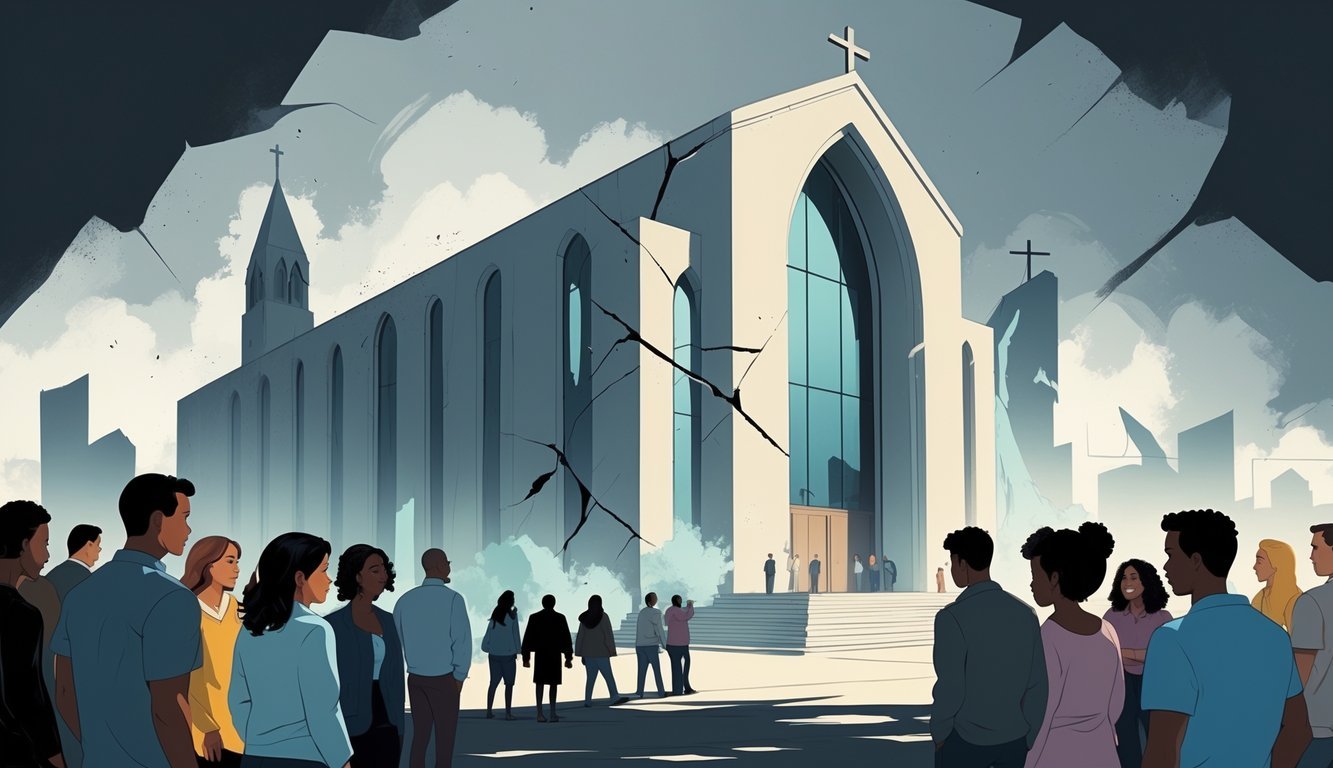
You’d expect church to bring people together and deepen faith, right? But the way megachurches run can change all that. The effects go deeper than you might think, shaping how you connect and what you believe.
Mega churches are so big that it’s tough to form close, real relationships. The crowd can feel anonymous, and you might end up feeling alone even in a packed room.
Small groups and church plants try to fix this, but they rarely match the warmth or accountability of a smaller church. Newcomers often struggle to find a real sense of belonging.
Without deep connections, honest talks about faith struggles or personal growth become rare. Discipleship—the kind that helps you grow strong in your faith—can fade away.
Mega churches love slick marketing and high-energy Christian music to draw crowds. Sometimes, it starts to feel more like a business than a place of worship.
You’ll see books, DVDs, and conferences for sale, and it gets hard to tell where ministry ends and money-making begins. The “prosperity gospel” and “harvest” talk can sound more like fundraising than true faith.
When style and success take center stage, you might wonder if the teachings have any real depth. Sometimes, it’s all about what’s trendy, not what’s true.
With so many people from different backgrounds, megachurches often water down their messages. Sermons avoid hard topics to keep everyone comfortable, but that can leave out the heart of Christian teaching.
Sometimes, important beliefs get ignored. The church might skip over tough questions about the Bible, Christian traditions, or even differences between denominations.
If you’re looking for solid teaching, vague theology can leave you feeling lost. It’s harder to defend your faith or stand up to new trends and pressures.
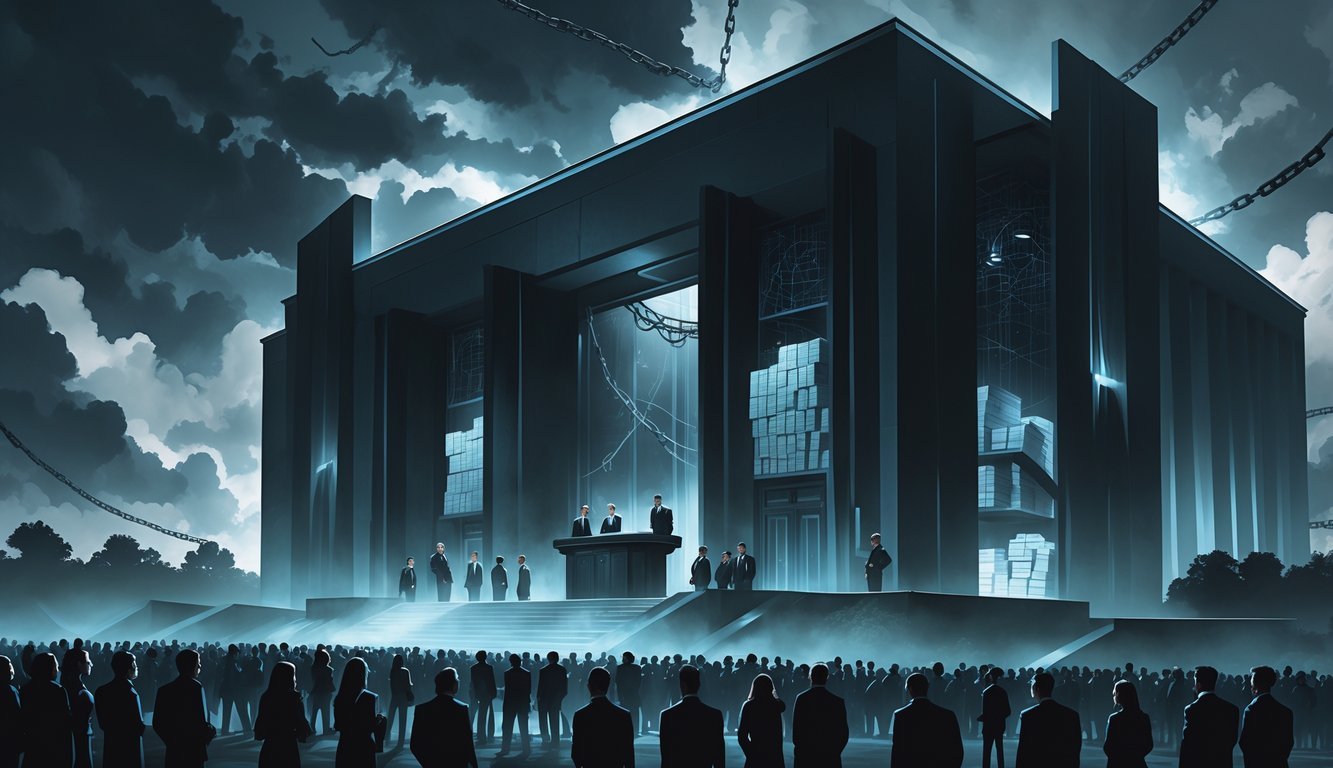
You probably have questions about what goes on in megachurches. People wonder about the criticisms, the money, their impact on smaller churches, and how open they really are.
People say megachurches care more about money and growth than spiritual care. Some folks think the focus is on entertainment, not on solid teaching.
These churches bring in big money from donations, events, and selling stuff. That raises questions about how leaders spend the cash and whether anyone holds them responsible for financial decisions.
Smaller churches often lose members to megachurches with more programs and fancy buildings. This can weaken the local community.
It really depends. Some leaders keep finances private, so members can’t see what’s going on. That secrecy can create trust problems.
Megachurches set trends in worship and teaching styles. They also have a lot of social and political sway because of their huge followings.
People have reported financial misuse and moral failings by some leaders. Sometimes, leaders don’t provide enough pastoral care.
Fast growth and huge budgets can lead to these problems. It’s a lot to handle, and honestly, mistakes happen.